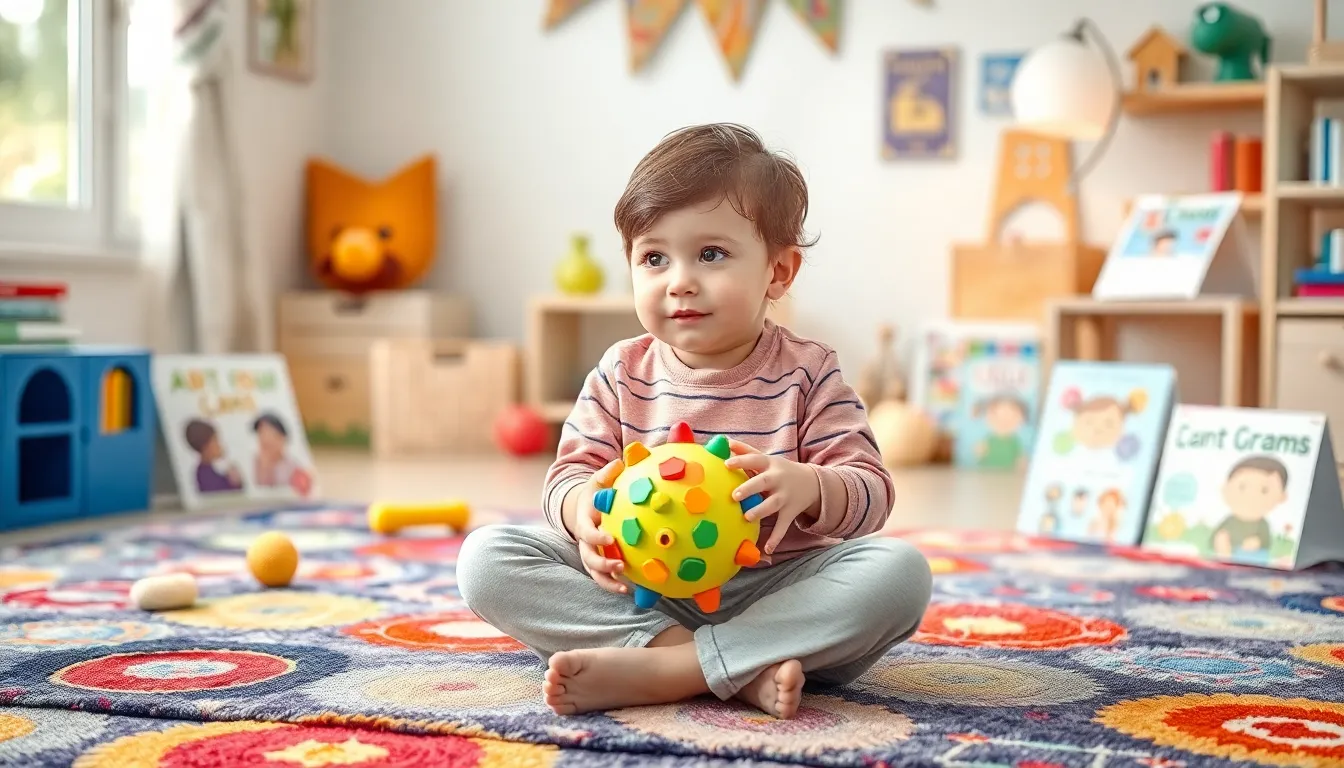Kids today face a whirlwind of challenges, from school pressures to social media drama. Just like their physical health, their mental well-being deserves a superhero-level of attention. After all, a happy kid is a productive kid, and who wouldn’t want to unleash a mini genius?
Understanding mental health for kids isn’t just important; it’s essential. It’s time to break the stigma surrounding mental health discussions. With the right tools and support, kids can learn to navigate their feelings, tackle anxiety, and even find joy in the little things—like not stepping on a Lego.
Table of Contents
ToggleUnderstanding Mental Health For Kids
Mental health for kids involves emotions, behaviors, and developmental challenges. Anxiety, depression, and stress can significantly affect children’s well-being. Recognizing these issues early enables timely intervention.
School pressures often contribute to mental health challenges. Academic demands increase, leading to feelings of inadequacy. Social media can exacerbate these pressures, creating a false sense of reality that affects self-esteem.
Communication plays a crucial role in supporting mental well-being. Encouraging open discussions about feelings helps children express their emotions. Teaching coping strategies equips them to manage stress effectively.
Creating a supportive environment enhances children’s mental health. Families should provide reassurance and understanding. Schools can implement programs that promote mental wellness and resilience, cultivating a safe space for kids.
Resources are available to assist children struggling with mental health. Therapists, counselors, and online resources can offer guidance. Engaging activities like mindfulness and hobbies also contribute positively.
Prioritizing mental health is essential for overall development. Research shows that kids who receive support develop better social skills and academic performance. Investing in mental wellness today creates a brighter future for children.
Common Mental Health Issues In Children

Understanding common mental health issues in children highlights the need for proactive support. Anxiety disorders and depression rank among the most prevalent conditions affecting kids today.
Anxiety Disorders
Anxiety disorders manifest in various forms, including generalized anxiety disorder, social anxiety disorder, and specific phobias. Children experiencing anxiety might exhibit excessive worry, restlessness, or avoidance of certain situations. It’s essential to observe physical symptoms like stomachaches or headaches, as these may indicate emotional distress. Timely intervention significantly improves outcomes; studies show that early treatment leads to better coping mechanisms. Offering tools like breathing exercises or routines can also help children manage their anxiety effectively.
Depression
Depression in children often presents as persistent sadness, irritability, or loss of interest in activities they once enjoyed. Changes in sleep patterns or appetite frequently accompany depressive symptoms. Identifying these signs early is crucial, as untreated depression can lead to long-term emotional challenges. Research indicates that children with proper support and therapy experience improved resilience and social skills. Encouraging open conversations about feelings can empower children to express themselves, making it easier for caregivers to provide necessary assistance.
Importance Of Early Intervention
Early intervention plays a crucial role in supporting children’s mental health. Timely action can significantly improve their emotional well-being and overall development.
Signs Parents Should Look For
Parents should observe behavioral changes in their children. Increased irritability or mood swings can signal underlying issues. Signs such as withdrawal from friends or activities may indicate anxiety or depression. Changes in sleep patterns, like insomnia or excessive sleeping, often surface during mental health challenges. Consistently expressing feelings of sadness or hopelessness calls for immediate attention. Persistent complaints of physical symptoms, especially without clear medical causes, require further evaluation. Being vigilant about these signs enables parents to address mental health concerns promptly.
Benefits Of Addressing Issues Early
Addressing issues early leads to improved emotional resilience. Children who receive support tend to develop better coping strategies for stress. It fosters healthier relationships with peers and family members. Early intervention also enhances academic performance by reducing anxiety related to school pressures. Timely support helps mitigate the risk of more severe mental health conditions later in life. Research demonstrates that children engaged in therapeutic activities show greater confidence and self-esteem. Prioritizing early intervention ultimately paves the way for a brighter future.
Strategies For Supporting Mental Health
Supporting children’s mental health requires intentional strategies. These approaches create foundations for resilience and well-being.
Creating A Supportive Environment
A nurturing environment helps children thrive emotionally. Home should feel safe and welcoming, encouraging children to express thoughts. Providing routines can enhance security, giving structure to their days. Spaces for relaxation, like reading nooks or quiet corners, promote mindfulness. In schools, fostering community through group activities boosts peer relationships. Encouragement of participation in physical activities, like sports or arts, aids emotional expression. Adult support remains vital, offering guidance and understanding. Research shows that such environments significantly enhance children’s ability to cope with challenges.
Encouraging Healthy Communication
Healthy communication forms the backbone of emotional support. Open dialogue creates trust, allowing children to share feelings without fear. Asking open-ended questions promotes deeper conversations about their experiences. Encouragement to express emotions, whether through words or art, fosters self-awareness. Listening attentively validates their feelings, signaling that their voices matter. Regular family discussions about mental health normalize the topic. Showing empathy helps children feel understood and cherished. When parents and caregivers model healthy communication habits, children often mirror those behaviors in their interactions.
Resources For Parents And Caregivers
Various resources exist to assist parents and caregivers in navigating children’s mental health. Professional support plays a crucial role, with therapists and counselors providing tailored strategies for emotional challenges. Books about mental health, specifically written for young audiences, can educate both parents and kids on recognizing and managing feelings.
Online platforms also offer valuable tools. Websites like the National Alliance on Mental Illness (NAMI) provide comprehensive resources, including support groups and educational materials. Mobile applications designed to promote mindfulness and relaxation techniques can help children develop coping mechanisms.
Engaging community programs enhance emotional well-being. Local organizations often host workshops aimed at parents to discuss childhood mental health. School counselors serve as essential resources, addressing students’ emotional needs while fostering a supportive environment.
Support networks strengthen connections among caregivers. Parenting groups allow for discussions about shared experiences, providing insights into various coping strategies. Social media forums can offer a sense of solidarity as parents connect with others facing similar challenges.
Inaccessible resources can lead to overlooked issues, so prioritizing mental health remains critical. Parents need to stay informed about signs of anxiety, depression, and stress. Early identification leads to timely intervention, which is essential for promoting resilience and emotional growth.
Some tools benefit both parents and children equally. Family activities like mindfulness exercises can create shared experiences that build emotional bonds. Open communication about feelings invites children to express themselves freely and fosters a supportive atmosphere at home.
Enhancing mental health awareness among caregivers directly influences children’s emotional development. As knowledge about mental health increases, it empowers families to take proactive steps towards well-being, leading to healthier, happier childhoods.
Fostering children’s mental health is vital for their overall well-being and development. By creating supportive environments at home and in schools, caregivers can help children navigate the complexities of their emotions. Open communication and early intervention play crucial roles in addressing mental health challenges effectively.
With the right resources and strategies, children can learn to manage anxiety and depression, ultimately building resilience. Engaging in therapeutic activities and maintaining healthy routines can significantly enhance their emotional health. As society continues to break the stigma surrounding mental health, prioritizing these discussions will empower children to thrive both academically and socially.




